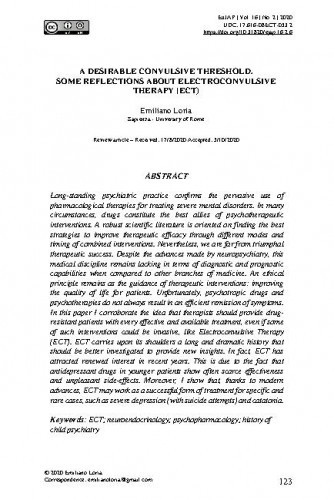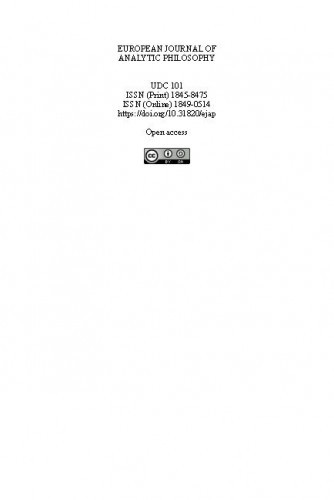Long-standing psychiatric practice confirms the pervasive use of pharmacological therapies for treating severe mental disorders. In many circumstances, drugs constitute the best allies of psychotherapeutic interventions. A robust scientific literature is oriented on finding the best strategies to improve therapeutic efficacy through different modes and timing of combined interventions. Nevertheless, we are far from triumphal therapeutic success. Despite the advances made by neuropsychiatry, this medical discipline remains lacking in terms of diagnostic and prognostic capabilities when compared to other branches of medicine. An ethical principle remains as the guidance of therapeutic interventions: improving the quality of life for patients. Unfortunately, psychotropic drugs and psychotherapies do not always result in an efficient remission of symptoms. In this paper I corroborate the idea that therapists should provide drug-resistant patients with every effective and available treatment, even if some of such interventions could be invasive, like Electroconvulsive Therapy (ECT). ECT carries upon its shoulders a long and dramatic history that should be better investigated to provide new insights. In fact, ECT has attracted renewed interest in recent years. This is due to the fact that antidepressant drugs in younger patients show often scarce effectiveness and unpleasant side-effects. Moreover, I show that, thanks to modern advances, ECT may work as a successful form of treatment for specific and rare cases, such as severe depression (with suicide attempts) and catatonia.; Dugogodišnja psihijatrijska praksa potvrđuje sveprisutnu uporabu farmakoloških terapija za liječenje teških mentalnih poremećaja. U mnogim okolnostima, lijekovi predstavljaju najbolje saveznike psihoterapijskih intervencija. Mnogo znanstvene literature usmjereno je na pronalaženje najboljih strategija za poboljšanje terapijske učinkovitosti kroz različite načine i vrijeme kombiniranih intervencija. Ipak, daleko smo od trijumfalnog terapijskog uspjeha. Unatoč napretku koji je postigla neuropsihijatrija, ovoj medicinskoj disciplini i dalje nedostaju dijagnostičke i prognostičke sposobnosti u usporedbi s drugim granama medicine. I dalje ostaje važeće etičko načelo za vođenje terapijskih intervencija prema kojemu je cilj poboljšanje kvalitete života pacijenata. Nažalost, psihotropni lijekovi i psihoterapije nisu uvijek uspješni za ublažavanje simptoma. U ovom radu potkrepljujem ideju da bi terapeuti trebali pružiti pacijentima otpornima na lijekove svaki učinkovit i dostupan tretman, čak i ako bi neke od takvih intervencija mogle biti invazivne, poput elektrokonvulzivne terapije (ECT). ECT na svojim plećima nosi dugu i dramatičnu povijest koju bi trebalo bolje istražiti kako bi se dobili novi uvidi. Zapravo, ECT posljednjih godina privlači sve veći interes zbog činjenice da antidepresivi kod mlađih bolesnika nisu učinkoviti i često imaju neugodne nuspojave. Štoviše, pokazujem da, zahvaljujući modernom napretku, ECT može djelovati kao uspješan oblik liječenja za specifične i rijetke slučajeve, poput teške depresije (s pokušajima samoubojstva) i katatonije.
Sažetak

 European journal of analytic philosophy : 16,2(2020) / editor-in-chief Marko Jurjako.
European journal of analytic philosophy : 16,2(2020) / editor-in-chief Marko Jurjako.